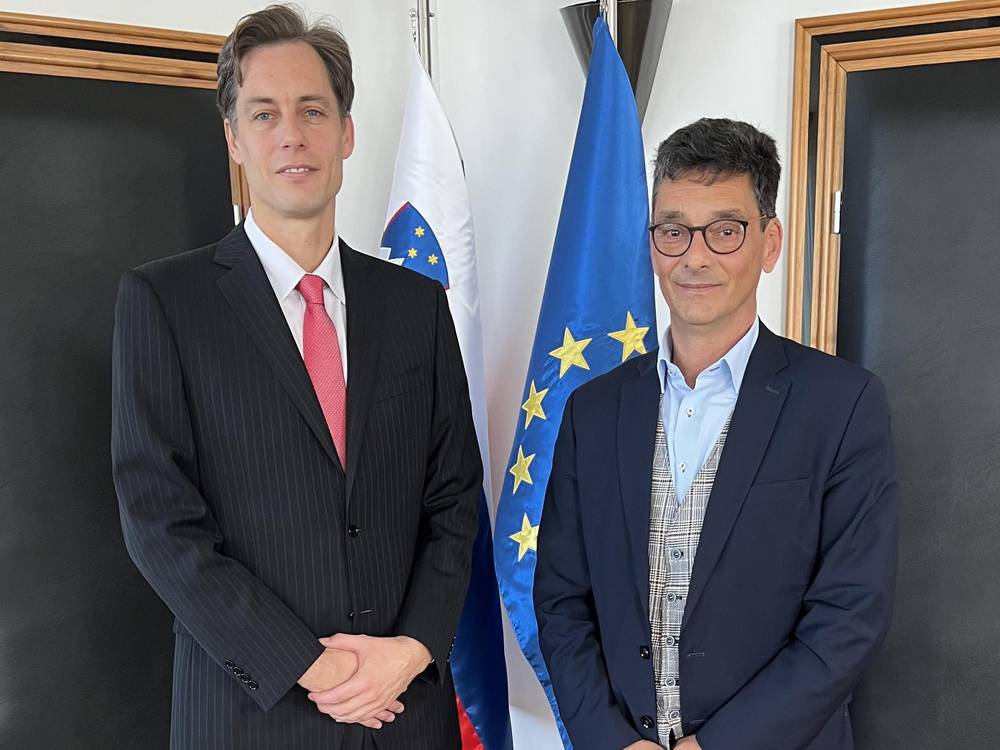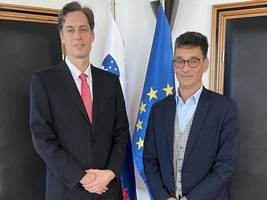The Human Rights Ombudsman Peter Svetina met with the athletes’ ombudsman Dr Rožle Prezelj, who received his second mandate at this position on 1 April 2023. In this position, he can actively strive for the establishment of a safe legal framework for uninterrupted activity of sportsmen and -women and work of expert sports workers without an administrative, contextual, or more significant financial base and with the consistent and legally correct implementation of the Sports Act or other legal acts in the field of sports. In his discussions with Ombudsman Svetina they addressed numerous questions they consider in their work and, in fact, have in common. They devoted their time discussing violation of rights in sports, touched upon work conditions and relationships in certain disciplines, and emphasised the importance of equality. They stressed that the abolition of inequality and discrimination regarding gender, discipline, etc. is essential not only regarding access to sports infrastructure, which is a frequent problem in practice, but also in a wider sense of the word. They also discussed the issue of (non)provision of the right to complaint and dispute solution in sports. They agreed that a (r)evolution is needed in the realisation of human rights in sport, since theory and practice are often in mutual opposition. This is also why they agreed to liaise with each other and collaborate more actively in the future, since they believe that together they can be more successful in addressing problems and the protection of rights of athletes.
Since, unfortunately, violations in sports are a constant, Ombudsman Svetina and Dr Prezelj emphasised that there can be no progress without actively addressing violations and the establishment of formal structures ensuring that the voice of athletes and all those working closely with them is still heard even when they do not achieve spectacular results. They also highlighted the importance of the National Sports Programme for the next 10 years, which is currently in preparation, and advocated the establishment of an independent agency for integrity in sports, which would focus on the realisation of rights in this field and the provision of the right to complain.
In the field of protecting human rights in sports, Slovenia participated in the founding of the Centre for Sports and Human Rights, the task of which is the implementation of human rights in this field, offering protection and help to affected individuals, and resolving disputes in the field of sports. However, unfortunately, Dr Prezelj believes that due to the unclear strategy, Slovenia is not represented in the right light in this field. He and Ombudsman Svetina agreed that this is unacceptable and that the state needs to do more in this field. Namely, an athlete’s career can quickly be endangered, hence in disputes they need immediate, effective, and reliable legal assistance. Therefore, they called on those responsible and the state to regulate the area, while they will continue to actively monitor and demand changes for the better.


![[Translate to English:] Varuh človekovih pravic Peter Svetina na srečanju z varuhom športnikovih pravic [Translate to English:] Varuh človekovih pravic Peter Svetina na srečanju z varuhom športnikovih pravic](/fileadmin/_processed_/4/4/csm_Varuh_s_varuhom_sportnikovih_pravic_8de58f9376.jpg)